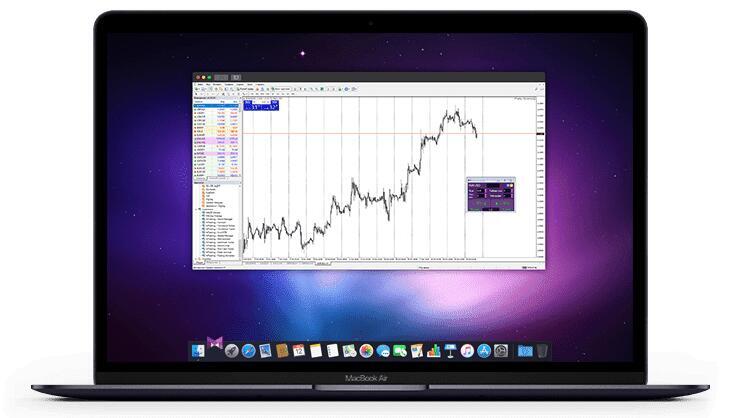What is accrued rent?

Rent Receivables represent a total of all debts which the landlord has earned from the rental property but which have not been remitted by the tenant as of the time the balance sheet was prepared. From the landlord’s perspective, accrued rent is an asset as it represents revenue that is yet to be paid. Accrued rent is therefore recorded as a debit entry on the accounts receivable and credit entry on the accrued rent account.
In general, deferred compensation is not deductible until the recipient includes the amount in income. Because all individuals are cash basis taxpayers, the employer is generally not entitled to a deduction for deferred compensation until the amounts are paid, because that is when it will be included in the income of the recipient. Thus, barring an exception, no amount of a liability for accrued compensation-type items would be deductible at year-end. The rent receivable account functions as an asset account that is used by the landlord to document the rent owed by tenants.
- To be fair, I can’t say I blame you; the rules for determining when a taxpayer may deduct an accrued liability are varied and confusing.
- In this case, the renter records a debit to the prepaid expenses (asset) account and a credit to the cash account.
- And while I hate to be the bearer of bad news, I’ve gotta’ tell you – you’ve been going about it all wrong.
Rather, it is the provision of the services by the other party that gives rise to economic performance. Another common misapplication of the first of the three “all events” tests is reflected in a situation that should hit close to home for most accountants. Say you perform an audit for a calendar-year, accrual-basis client every year, beginning in March. Advisors often pay this requirement little mind, assuming that if a liability has been accrued for financial accounting purposes, it is a fixed liability that satisfies the all-events test for tax purposes. The need to have a business location compels businesses to either buy or rent a place for their operations.
Accrued rent revenue journal entry
Under ASC 842, accrued rent is no longer recognized as its own line item on the financial statements. The ROU asset is calculated as the lease liability, which is derived from the present value of future cash payments, adjusted for some specific reconciling items, including prepaid, accrued, and deferred rent. Over the entire lease term, total cash payments will equal the total expense incurred.
Acceleration or penalty clause: aircraft leases – Farrer & Co
Acceleration or penalty clause: aircraft leases.
Posted: Wed, 06 Sep 2023 13:29:53 GMT [source]
Now we’re ready to examine the application of the economic performance rules and the recurring item exception to several major categories of liabilities in order to determine when each type of liability may be deducted by an accrual method taxpayer. Since we follow the accrual basis of accounting, we need to record the $3,000 rent income that we have already earned at the period-end adjusting entry of June 30. Similar to fixed and variable payments, prepaid rent has different accounting implications under each standard. However, under ASC 842, prepaid rent is included in the measurement of the ROU asset. If the lease agreement defines the rent payments as contingent upon a performance or usage but also includes a minimum threshold, the minimum is used in the calculation of the lease liability.
For example, a company that pays its employees monthly may process payroll checks on the first of the month. That payment is for work completed in the previous month, which means that salaries earned and payable were an accrued expense up until it was paid on the first of the following month. If the lease payment is variable the lessee cannot estimate a probable payment amount until the payment is unavoidable. Even if a high certainty the performance or usage the variable lease payment is based on will be achieved does exist, the payments are not included in the lease liability measurement. While it is highly probable performance or usage will occur, neither of these things are unavoidable by the lessee until after they have been completed. Base rent, also known as fixed rent, is the portion of the rent payment explicitly stated in the contract.
Accrued rent receivable definition
An increase in assets is recorded as a debit which is why the accounts receivable which is an asset account are debited. Deferred rent is the difference between the amount of rent paid and the rent expense. In a straight-line rent application, the rent paid in the early months of the lease is less than the rent paid in later months.
Economic performance is achieved ratably over the period of time for the use of property (for rent) and for the amounts paid on borrowed amounts (for interest). The concept of a recurring item exception is not applicable to rent expense because that economic performance hasn’t occurred since the property has not been used for that future period yet. Treasury regulations prohibit the use of the recurring item exception with respect to accrued interest. At first glance, they seem simple, but when you review the details, there are several considerations that need extra attention. This is typically a concern for accrual basis taxpayers because cash basis taxpayers are, for the most part, only allowed to deduct an expense when it is paid. Later, when we receive the rent payment, we can make another journal entry to clear the rent receivable that we have recorded previously.
Accounting for accrued rent under ASC 840
Accrued rent is caused by a timing discrepancy between the expense being incurred and recorded. For example, if payments are made quarterly at the end of the quarter, expense will need to be recorded each month, before payment. The act of recognizing the expense when the company is obligated to pay for the use of the asset but before payment is made is called accruing the expense. Whenever the rent is paid, the accrued rent will be reduced by the amount paid. Similarly, the economic performance criteria for rebates, insurance, prizes/awards and warranties is not achieved until payment is made.

And while I hate to be the bearer of bad news, I’ve gotta’ tell you – you’ve been going about it all wrong. To be fair, I can’t say I blame you; the rules for determining when a taxpayer may deduct an accrued liability are varied and confusing. But after this week’s Tax Geek Tuesday maybe, just maybe, we’ll get you on the right track. Combining these two pieces of information, the previous preparer permitted a tax deduction for the amounts paid within 8 ½ months of year-end, and disallowed any remaining balance of the accrual. Overall, rent accounting under ASC 842 requires a detailed analysis of lease arrangements, lease terms, and lease payments, as well as careful consideration of transition requirements. It is important for entities to have robust processes and systems in place to ensure compliance with the standard.
What is Variable Expense?
Thus, LP1 may not deduct any accrued liability for the well booked at December 31, 2013. The regulations do not require that the exact amount of the liability can be determined prior to accrual; rather, they require reasonable accuracy. Accrued rent is a liability under the ASC 840 methodology, but under ASC 842, there is no accrued rent. This is because there is already an asset and a liability recorded for the lease under the new standard. This situation is recorded with a credit to a liability called Accrued Rent, representing the obligation to pay at a later date for the benefit received.
Accrued expenses are liabilities that build up over time and are due to be paid. Accounts payable, on the other hand, are current liabilities that will be paid in the near future. In this article, we go into a bit more detail describing each type of balance sheet item. As opposed to the treatment of accrued rent, the regulations make clear that the recurring item exception may not be used to deduct accrued interest. Thus, it is irrelevant if economic performance occurs within the required time period after year-end. Businesses prepare different kinds of reports at the end of each accounting year.
The accounting for accrued rent from the perspectives of the landlord and the renter are noted below. Under ASC 842, you would see the same entries, but the prepaid rent would be recorded to the ROU asset in place of a separate prepaid rent account. Accrued expenses are payments that a company is obligated to pay in the future for goods and services that were already delivered. For example, https://online-accounting.net/ on January 01, 2021, we rent a car to use in our business operation. The rental fee is $800 per month and due to special conditions, we are allowed to make the first payment of $2,400 (800 x 3) at the end of the third month of the rent period. Economic performance with respect to LP1’s liability for drilling and development services provided to LP1 by Z occurs as the services are provided.
Help for Maui wildfire victims – Disaster Unemployment Assistance, Landlord/Tenant, Bills & more – KHON2
Help for Maui wildfire victims – Disaster Unemployment Assistance, Landlord/Tenant, Bills & more.
Posted: Sat, 02 Sep 2023 00:22:22 GMT [source]
Other times organizations rent different types of equipment – such as office or maintenance equipment – because they require more flexibility than the ownership of property offers. This includes things like employee wages, rent, and interest payments on debt owed to banks. The term accrued means to increase or accumulate so when a company accrues expenses, this means that its unpaid bills are increasing.
Revenue should be recognized when it is earned, regardless of the time of receiving cash. Likewise, the company should make the journal entry for the accrued rent revenue that it contribution margin has earned during the accounting period. We can make the journal entry for the accrued rent expense by debiting the rent expense account and crediting the rent payable account.





Responses